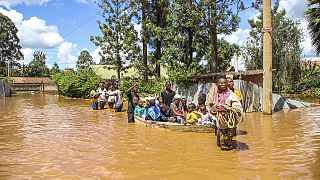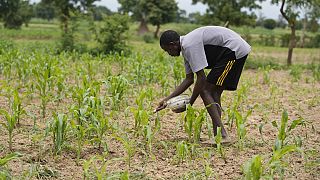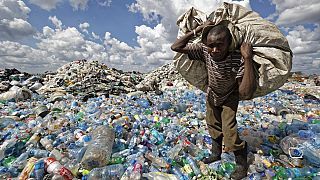Kenya
Kenya’s wildlife officials are carrying out an exercise to identify elephants’ reaction to a new high-speed railway line.
Ten elephants regularly found near the Standard Gauge Railway will be fitted with advanced satellite radio tracking collars in the Tsavo ecosystem.
The exercise is the start of a joint project initiated by the Kenya Wildlife Service with the group Save the Elephants providing technical and logistical support.
Frank Pope is the Chief Operating Officer for Save the Elephants in Kenya.
“This is the first time this is being done with respect to infrastructure. So what we are trying to do is figure out how elephants are responding to this new high speed railway line that has been put through, which is cutting between Tsavo East and Tsavo West national parks. There have been underpasses put under this railway and what we want to do is see how elephants are responding to these underpasses,” Pope said.
A 133 km section of the 609 km high-speed railway passing through the Tsavo Conservation Area is being raised above the normal terrain levels so that elephants would pass down.
Kenya have had in many reserves both animals and humans stay together. Over the last decade, wildlife has been under pressure from rapid growth and human encroachment.
“Luckily enough, Tsavo is still quite expansive. We have an area of more than 20,000 square kilometres, so a bit resilient in a way but still receiving a lot of pressure from human settlement and now things like the standard gauge railway, which has altered wildlife movement patterns in a way. So this brings a long human wildlife… increased escalation in human wildlife conflict cases, whereby you will find elephants crop raiding in areas that they didn’t used to to begin with or just the total increase in conflict cases,” said KWS elephant programme director, Sospeter Kiambi.
Kenya’s game parks and abundant wildlife draw tourists from across the globe but the government has said that must not stop the east African nation from building infrastructure to speed up development.
Benson Okita, head of monitoring at Save the Elephants said development should not come at the expense of conservation.
“Wildlife in this country is such a major economic player. So as much as we do the development and we want to make easy access between cities and we want to transport goods easily, we must also remember that the wildlife sector is as important as those other developments we are doing. So, if we are going to do it blindly and not thinking about wildlife and blocking this connectivity then in one way we are again killing another sector.”











01:02
Pics of the day: April 23, 2024
Go to video
Can Kenya's new visa-free policy hurt tourism instead of boosting it?
00:49
London Marathon: Women's-only world record, Kenyan double victory
01:49
Kenya: Climate activists march against fossil fuel industry
00:57
London Marathon to honour late Kenyan athlete Kelvin Kiptum
01:02
Pics of the day: April 18, 2024